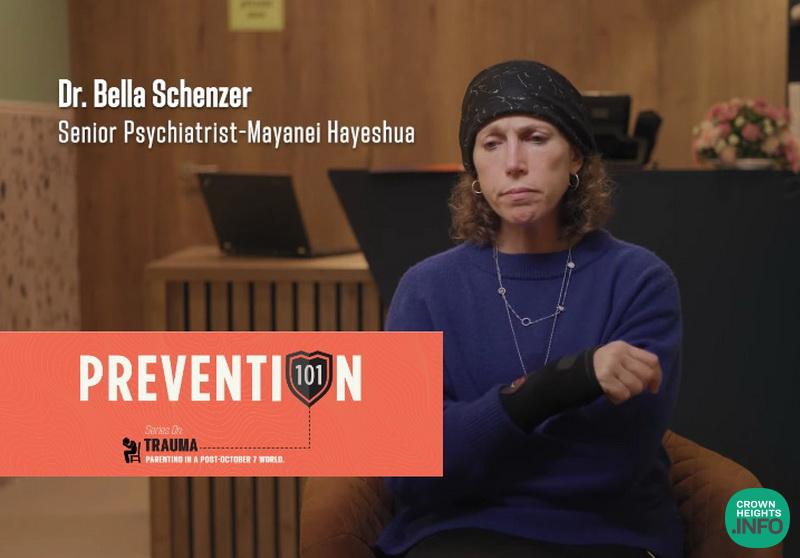
Prevention101: Series on Trauma: Episode #5 – She Was With A Friend Near the Gaza Border and Hid in A Shelter for 12 Hours. How Can We Support Her?
Series on Trauma: Episode 5 – Parenting in a Post-October 7th World. The series addresses questions regarding trauma following the massacre of October 7th and the surge of global anti-Semitism.
On October 7th, my 19-year-old, studying in Israel, was staying with a friend near the Gaza border. They hid in a shelter for 12 hours until they were rescued. How can we support her?
As we’ve discussed previously, the majority of individuals who go through a traumatic experience are fine. Their symptoms resolve themselves. So, she may have symptoms, and she may not have symptoms. The human condition has an incredible capacity for resilience and survival. Just because she went through a horrific experience doesn’t mean there’s something wrong. If there is something wrong, then she would need help.
I have some questions for parents to ask themselves. Have I asked my child if she is okay? How does she seem when I speak to her? Does she seem withdrawn? Does she seem distant? Does she seem angry? Does she seem scared? Is she complaining about things? In this situation, as parents, you need to talk to your child. You need to ask your daughter how she’s feeling. Ask her what she’s thinking about. Ask how she’s doing. Ask if she’s having trouble at school. Is she having trouble with her friends? Is she having trouble sleeping? Is she having trouble eating? Has she lost weight? Has she gained weight?
Get a sense from yourself about what’s going on with your daughter. More likely than not, she’s okay. In that case, making her feel like there’s something wrong with her would not be helpful. On the other hand, if she is struggling in any of those arenas, then she should see somebody. There’s never a downside to speaking to a professional once. At minimum, they’ll feel like they get to talk about how they’re doing. How often do you get to talk about yourself for forty-five minutes? It’s not the worst thing in the world.
Before you can decide whether or not your child needs help, you actually need to ask your child how they’re doing. Don’t make any assumptions one way or another. Let her tell you, and focus on functional impairment, changes in lifestyle, and changes from her normal baseline. Based on how she’s doing in those different areas, you would then refer her to speak to a therapist and/or psychiatrist.











